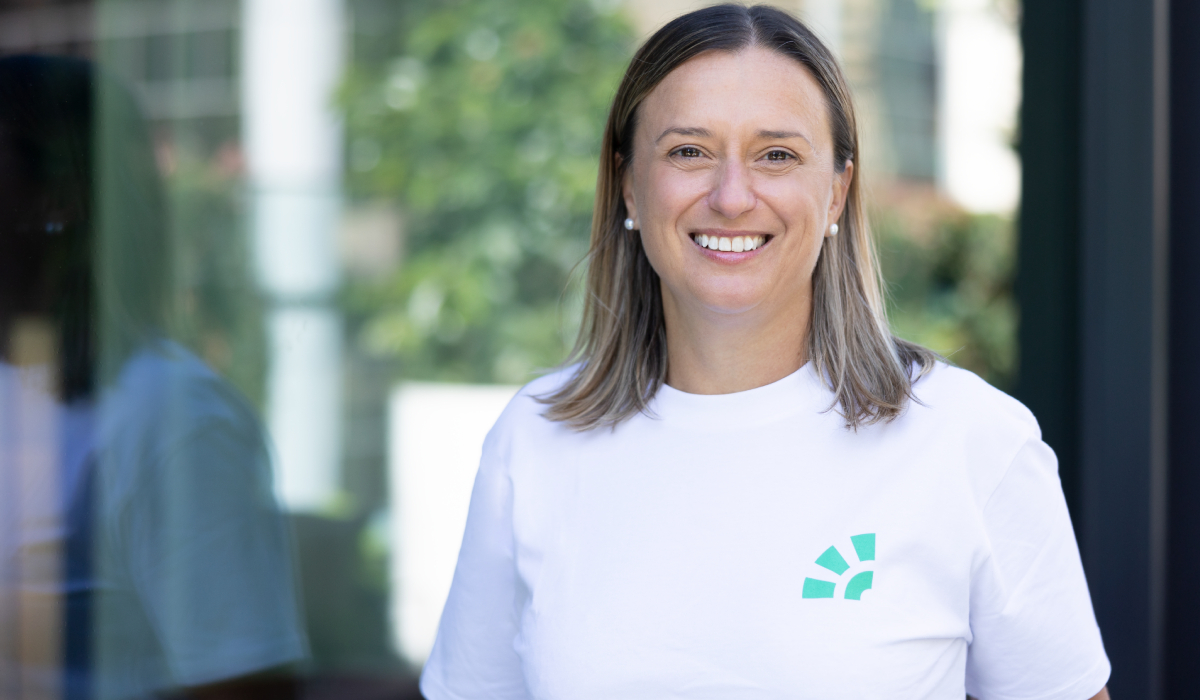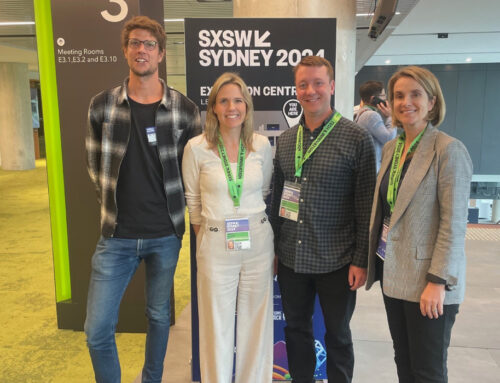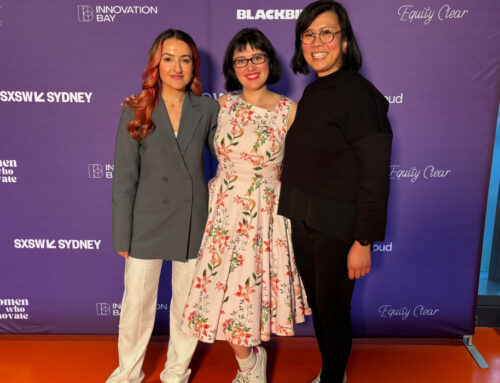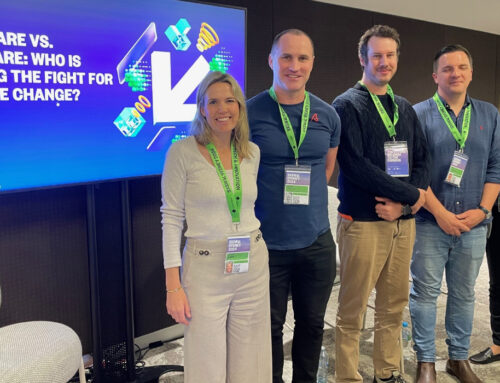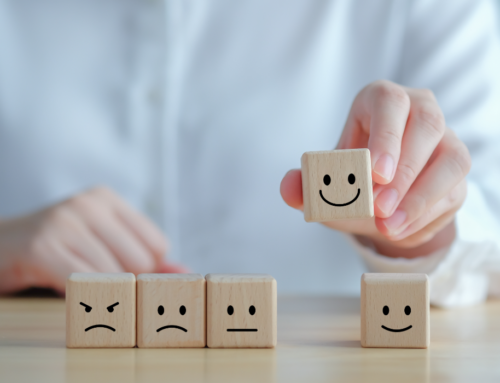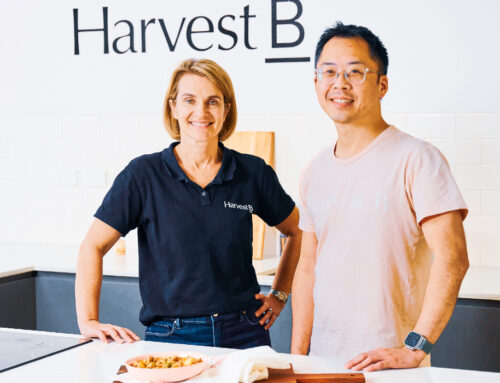When Katherine McConnell quit a successful job with Macquarie Bank to found a green energy start-up, Brighte, the risks were obvious. But one risk that might not have been evident to others was her gender.
“As a female fintech founder, there weren’t many of me when I started,” Katherine says. “I didn’t have many role models. The people I had were men, so I was looking at them and trying to emulate them, but for me that wasn’t right. I had to get comfortable and understand who I was, and what I was.”
Consider the fact Katherine was also a mum of two children and no longer in her twenties, and you could say the odds were stacked against her. Fast forward to today; however, and Brighte is an undeniable success story. Known as Australia’s number one-stop-shop for sustainable upgrade solutions, Brighte has 150 employees, and crucially, a company that has approved more than $2bn in applications – resulting in more than 150,000 Australian households being able to afford sustainable energy solutions. A win for both the environment and the hip pocket.
Katherine was speaking as a guest of Alberts at the company’s recent inaugural founders’ retreat, an apposite guest given Alberts’ own investment focus on the environment and equality.
Katherine trained as an economist and worked in Treasury and the Department of Finance before joining Macquarie Bank, where she spent 14 years, ultimately working as a senior manager in energy and equipment departments.
Using the deep experience gained at Macquarie, Katherine pitched a business idea to the bank for a digital business that provided an easy payment platform to Australian households to enable affordable access to rooftop solar, solar hot water, home batteries and electric vehicles. An early adopter of solar energy and storage batteries herself, Katherine was adamant solar would continue to grow and knew batteries would be integral to Australia’s future, given climate targets and the financial benefit to homeowners.
But Macquarie Bank was unable to take on the risk, so Katherine quit her job and founded Brighte the next year, in 2015. “I knew it could be a sustainable business model, I knew it was investible and I had this defensive moat because I knew the big banks couldn’t come on and do what I was doing,” Katherine says. “It was complex and big and a problem I could solve. I thought it would make a difference financially for households; and domestically and globally to meet climate targets.”
The calculated risk paid off, in spades. Today, Brighte connects a network of more than 2300 clean energy vendors to flexible green payment solutions and has partnerships with the Tasmanian and ACT governments, helping make sustainability affordable and accessible. The result is more than 2.3 million solar panels installed across Australia, preventing 1.2 million metric tonnes of CO2 emissions each year.
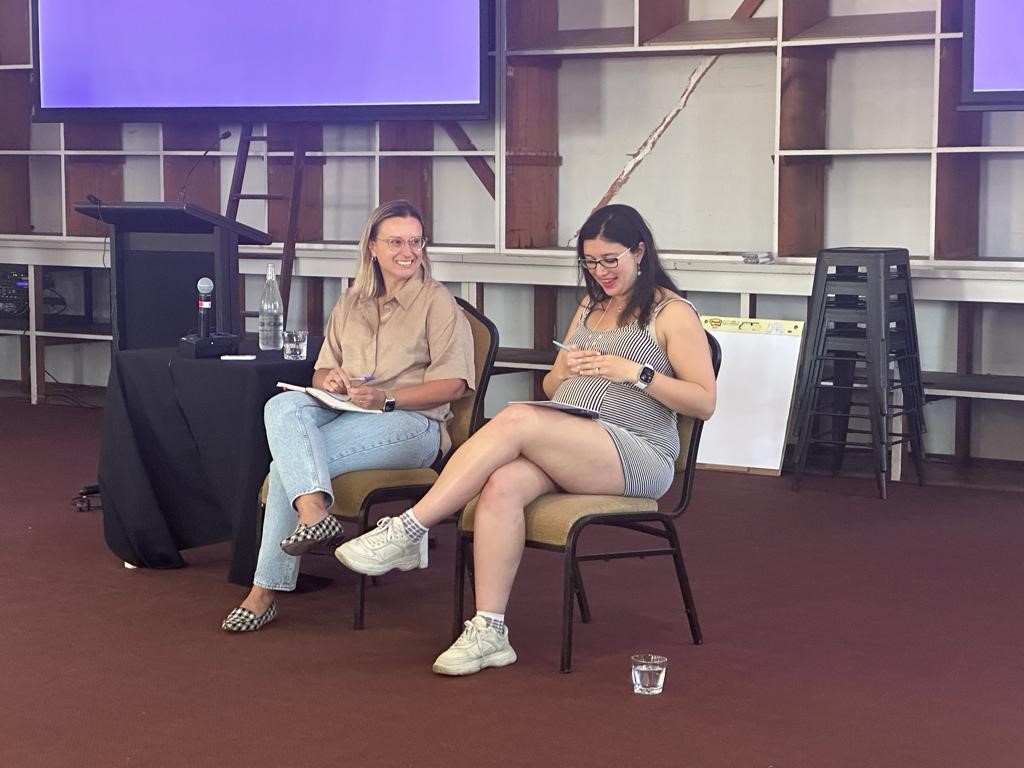
Special guest Katherine McConnell speaking with Alberts Investment Manager Lisa Fedorenko at our inaugural founders retreat.
As CEO of Brighte, Katherine was this year honoured with the B&T Women Leading Tech Sustainability Crusader award, and named among The Australian newspaper’s The List: Top 100 Green Energy Players.
But it hasn’t always been awards and positive headlines. In 2020, Brighte was offered an unsolicited $100 million investment and the company quickly looked to grow, including an energy retailing unit, plans for offshore expansion, and increasing staff from 110 to 300. But by early 2022, the tech crunch was taking hold and interest rates were on the verge of rapidly increasing.
“The market had changed, my burn rate was really high and I needed to fund it,” Katherine says. She and her executive team made the tough but necessary decision to shelve the international business and with it let go a number of staff, ultimately taking the company back to 110. Brighte refocussed on the core business, operational efficiency, and adjacent business areas.
“That was a really, really tough time,” Katherine says candidly. “I moved from eight executives to two, a CFO and COO. I got back on the tools and managed half the business. As a founder you have to make those decisions, it’s do or die. There’s an element where it’s lonely being the founder, because some of those decisions you’ll have no one telling you what to do, no one supporting you. That’s the job of the founder.”
Of course, we know Brighte has since turned its business around spectacularly. The company has expanded its margin by 500 per cent, has an extended runway to 2025, and is readying for a Series C raise.
Like her fellow Alberts guest speaker Ed Cowan, Katherine says a flourishing culture has been crucial to Brighte’s success. In 2018, the company formally established its mission and values, and today they’re written on the walls and embedded in everything company members do, from the way they work to the way they treat customers.
“Living it means you have to act it, and if you don’t, it has to be called out and there has to be consequences,” Katherine says.
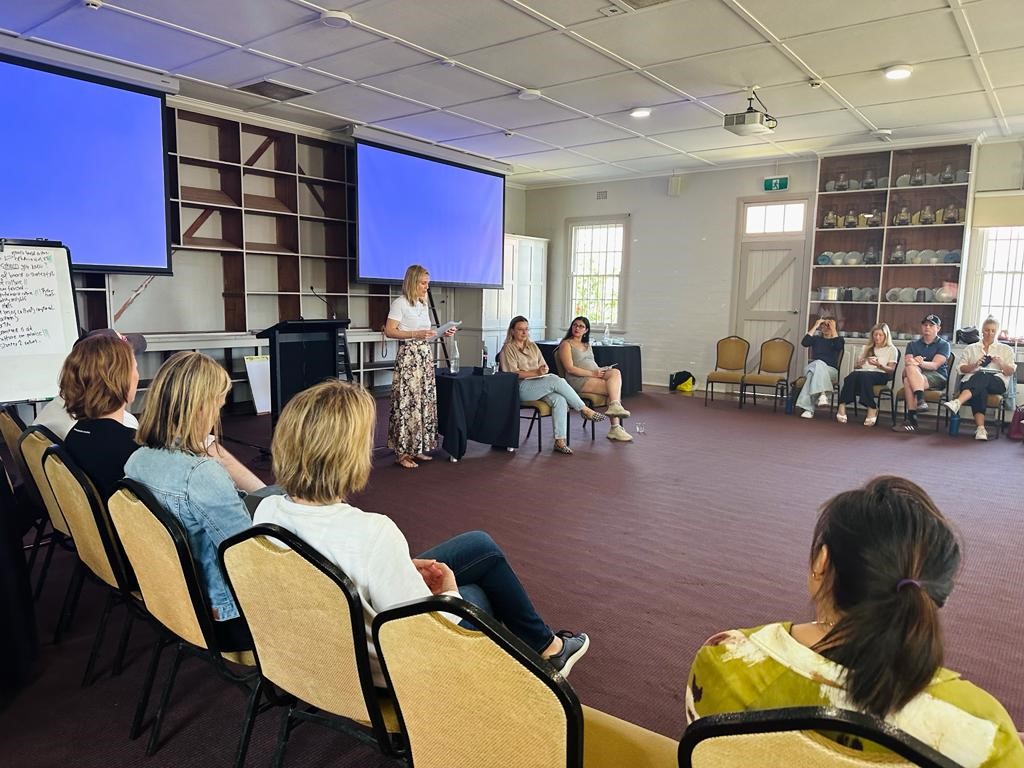
Alberts Executive Director Ingrid Albert (standing) introducing Katherine McConnell (centre) and investment manager Lisa Federenko at our inaugural founders retreat – the latest in a series of panels and get togethers as part of Alberts commitment to issues such as diversity, equity, inclusion and mental health among its founders.
A Slack channel, Brighte Stars, allows employees to allocate stars to colleagues based on the values, with accumulated stars resulting in movie vouchers, magazine subscriptions, or days off.
Just as important as a healthy culture is maintaining a work-life balance: “I have kids and a husband who works and parents who need me from time to time – I need time off because I get busy and tired, it’s just life,” Katherine says.
But that balance is only achievable because of what Katherine says is the understanding Brighte has as a high performing team, and a level of trust that people are pulling their weight and share a joint aspiration around performance. Just don’t refer to that team as family: “I get really annoyed when I read about ‘the Brighte family’ because family wouldn’t kick someone out for not making their bed. But unfortunately, at Brighte, if you’re not part of a high performing team and don’t pull your weight you won’t stay on our team!”
Eight years down the track, Katherine is now comfortable not fitting the cookie cutter founder model, confident her difference is her strength. “Initially I wanted to speak like others and use their terminology because I thought that’s what you had to say and look like,” says Katherine, who ultimately found her own authentic self.
“People might react to that difference but that’s OK. It cuts through, and you start to create your own brand. Authenticity is something I can do well.”
